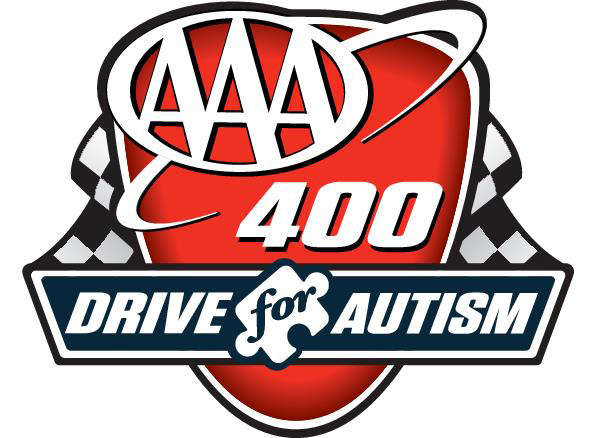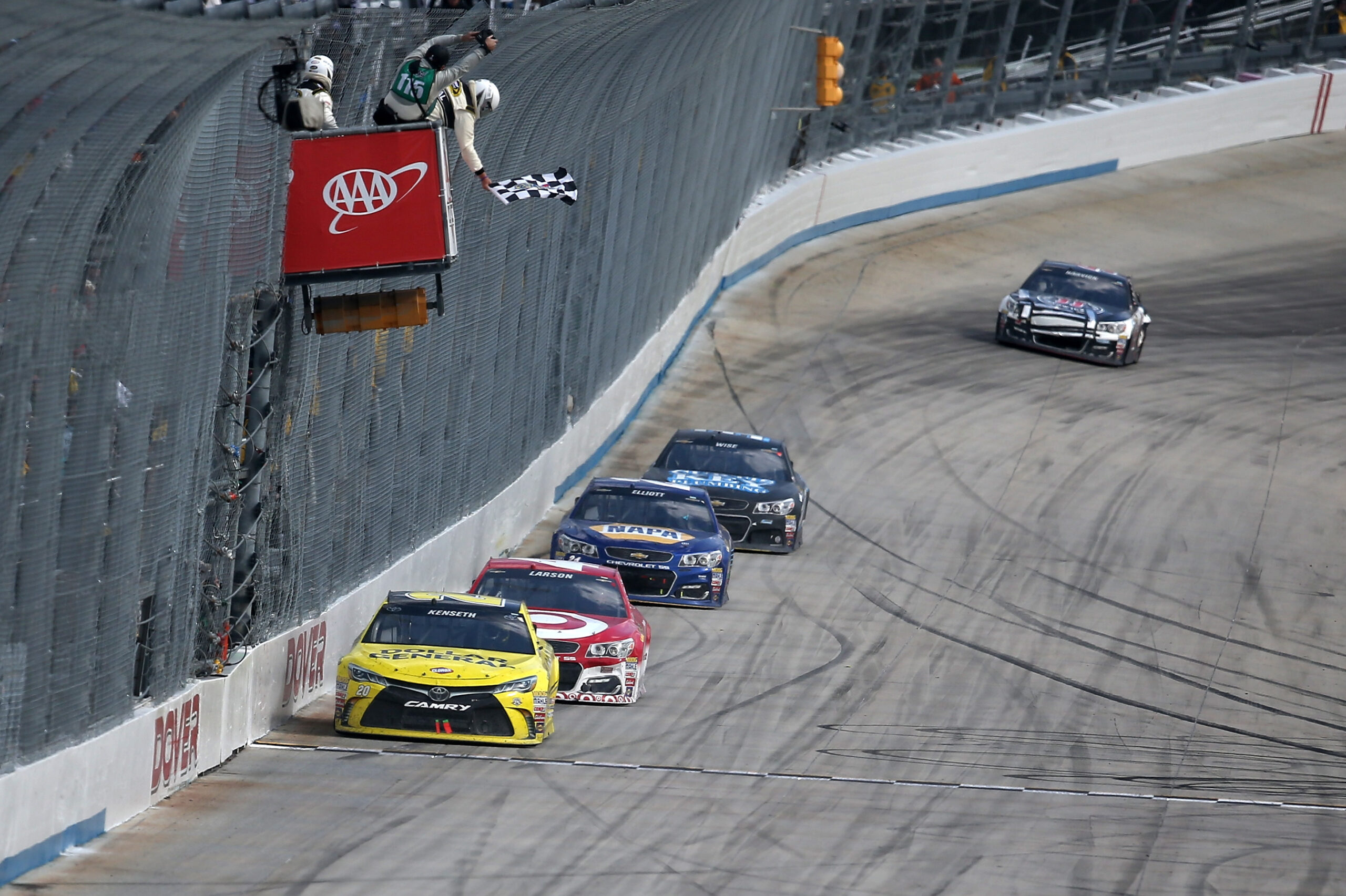Kyle Busch had a long day on Sunday.
The 2015 Cup Series champion, still on the hunt for his first points win of the season, entered the Coca-Cola 600 with a lot of expectations. He had just won the All-Star race at Charlotte the week before and was primed for his first-ever Cup win at the near 60-year-old speedway.
Instead, Busch played second fiddle to Martin Truex Jr. for the majority of the race, until finally getting by the defending race winner on the last lap. But Busch had to settle for second thanks to Austin Dillon stretching his fuel far enough to skip the last green flag pit stop.
Six hours after climbing into his No. 18 Toyota for the first time Sunday evening (the 600 mile race had a one hour, 40 minutes rain delay in the middle of it), Busch was in the media center fuming.
“I’m not surprised by anything. Congratulations [to Dillon],” Busch told the media, then left the room without answering any other questions.
There have been plenty of people online who have called Busch a whiner, a person too spoiled to finish second and swallow it. “Why is he complaining so much? He finished second!” seems to be the general consensus of a lot of fans on social media.
A lot of fans on social media also complain about drivers not showing any emotion in interviews, for what it’s worth.
Most drivers finish second and seem almost giddy about it. How many times has TV interviewed the guy in second and their comments are essentially, “We had a strong car today, I can’t thank [sponsor] enough, It’s a long season and we got take it one race at a time”?
Then, when a driver shows actual, genuine frustration about not being able to win a race, said driver is demeaned as being a whining crybaby that needs to grow up. That’s why there really isn’t any emotion in the sport anymore because drivers are either individual parts of a much larger problem or become a problem if they actually do.
Busch is one of very few drivers who doesn’t really mask his emotions after a race. Tony Stewart was another one who didn’t, and he usually got blasted for it by the fans and media.
It’s unique how NASCAR conducts media interviews. Typically in sports, the players are given a few minutes in the locker room to cool down before talking to anybody in the media. In NASCAR, these guys spend three-to-four hours wheeling a big heavy stock car around for 500 miles, then talk to the media almost as soon as they get out. It’s a special privilege that could very easily be revoked by the sport if it wanted to; it’s a chance to see into the real feelings of these guys and girls, but they can’t show them or else fans will crucify them.
Kyle Busch doesn’t want to just win races. He wants to win every race he enters. Why is that such a terrible quality to have? Do people really want their drivers to wake up every Sunday and go, “Well, as long as we get out of here with a top 10, I’ll be happy”?
There was a case to be made that finishing in the top 10 every week would be a great thing for a driver. But the system NASCAR has now rewards winning over everything else. When the points reset come Chicagoland, Busch will have five fewer points than he would have had if he had won this race. Finishing second in this race won’t mean anything unless Busch makes up over 100 points in the standings and is leading them, come Richmond. Even then, this individual second isn’t going to mean as much as a win would have.
Now, were Busch’s actions following the race the right thing to do? No, but who tends to make good choices when they are frustrated? And being frustrated is a lot more meaningful in my opinion than finishing second and putting on a fake smile, because at least then it means something to win a race.
And for those who use the argument that children are watching and that Busch should set a good example; I mean, he doesn’t have to. There’s no rule that says that, in order to like NASCAR, a young fan needs to look up to Kyle Busch. It’s up to the parent or guardian to teach the kid that hey, maybe that guy on TV is a good example of a sore loser. That’s not Busch’s responsibility. And give kids more credit, for what it’s worth. There are probably a lot of kids who look at Busch as the “bad guy” compared to the “good guy” drivers like Dale Earnhardt Jr. or Chase Elliott.
Imagine if, at the end of a movie, the bad guy put a smile on their face and talked about how great it was that the good guy was able to make it through all of their obstacles and ended up victorious at the end. That’s just not how entertainment works, and sports are entertainment at the end of the day.
And even if we use the example of kids looking up at Busch, it all depends on the angle of which we’re looking at Busch’s behavior. A parent could teach their child to never just settle for second. Maybe not that winning is the only thing, but that it should definitely be striven for.
At the end of the day, Busch’s moment will eventually be forgotten about. It’ll live on in YouTube compilations, but in a couple of weeks we’ll have all forgotten about it and moved on to the next thing. This won’t really bring much long term baggage to Busch’s season or career at this point. After all, in Busch’s world, everything is great, and if it isn’t, there’ll be another win to make it so before long.









